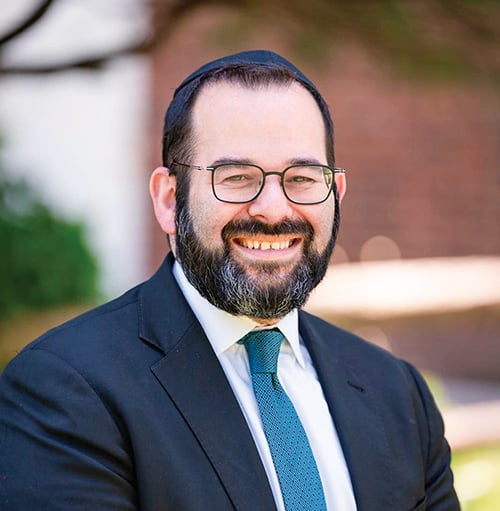
Reviewing: “Words for the Wise: Sixty-Two Insights on Hebrew, Holidays, History and Liturgy” by Mitchell First. Kodesh Press. 2022. English. Paperback. 266 pages. ISBN-13: 978-1947857971.
“Words for the Wise” by Mitchell First has rekindled my love for Shalom Aleichem (by which I mean the tefillah that we sing at the table on Friday nights before kiddush). I’ll explain.
I learned long ago that if you only studied a topic in grade school, then you only have a grade schooler’s understanding of that topic. This leads people to underestimate certain esoteric topics. They studied Chumash with Rashi, and Rashi cites fanciful midrashim. Third graders take such things literally, and that’s fine. But before you know it, those third graders are 21, and some of them only know the explanations they were given when they were 8. This can cause people to be dismissive of certain concepts, simply because they still have a child’s perspective of them.
I guess I have fallen prey to this trap. As a youth, I learned the story behind Shalom Aleichem—how two angels follow us home from shul, one nice and one not so nice. When they see whether our homes are peaceful or chaotic, the appropriate angel says, “May next week be thus,” and the other is compelled to answer, “Amen.” It’s a nice story but not something I’ve invested a lot of thought in over the past many years.
Mitchell First has given me something I never had and didn’t realize I was missing: a mature perspective on Shalom Aleichem. Where does the story of the two angels appear? Who authored this tefillah? What objections has the prayer faced? Why does the first stanza say malachei hashareis rather than malachei hashalom? These are just some of the things that First discusses on this tefillah; the authorities have taken it very seriously over the centuries. Clearly, Shalom Aleichem is not just a song with a cute backstory for the kids.
I have discussed Shalom Aleichem at some length because it’s an entry that affected me personally; First does likewise with any other number of topics. Some of these are in the realm of liturgy (Anim Zemiros, the kedusha in Uva l’Tziyon, et al.), others are on holidays (Tzom Gedaliah, chinuch and Chanukah), and still others are on history (Jewish names and modern Israel, the pasha giving the keys to Yerushalayim to the Chief Rabbi in 1861, and more).
One area of study that is represented throughout is that of etymology. If you’re interested in word origins (as I am), you’ll be in linguistic heaven as First dissects various words for seeing in Tanach, interesting words in Megillas Rus, and hendiadys—two words understood as a single idea. (Examples of the latter include such phrases as ger v’toshav and p’ru u’rvu, each of which is phrased as two things but refers to a single thing. An example in English might be if you say that your beer is “good and cold.” You don’t mean that your beer is (a) good and (b) cold; you really mean that it’s cold, the way you like it.)
All told, “Words for the Wise” contains 62 informative and engaging essays. This volume is actually the third in a series, following “Roots and Rituals” and “Links to Our Legacy,” each of which contains many more such essays, all equally enlightening and entertaining. (Many of these essays originally appeared in The Jewish Link, followed by a tongue-in-cheek biography relating to that week’s topic; each of these bios appears in the collection. The essays themselves are generally played straight, but you can tell that the author is enjoying himself. The occasional overt joke does slip through—he ends the last essay on a particularly good one—but I won’t spoil them for you here.)
One bugaboo I have about Jewish books in general is when books that are not on parshas hashavua arrange things according to the weekly Torah portion. I, personally, find that limiting, and occasionally contrived. First does not do this. Rather, he arranges things according to his major subject headings: Holidays, Liturgy, History and Hebrew Roots. He does, however, include a guide to studying various topics according to the weekly sedra for those who wish to do so. While he doesn’t go through the entire annual Torah cycle, I applaud the practice. I encourage the author to continue this practice in the future and for others to adopt it.
Bottom line, “Words for the Wise” and its companion volumes are must-reads for lovers of liturgy, history, and especially etymology. Even those whose loves do not fall into these disciplines will find their Jewish knowledge expanding with substantive essays that are accessible to all readers.
After all, each of us has a third-grade understanding of something. Why not bring your knowledge in that area up to date?
By Jack Abramowitz













